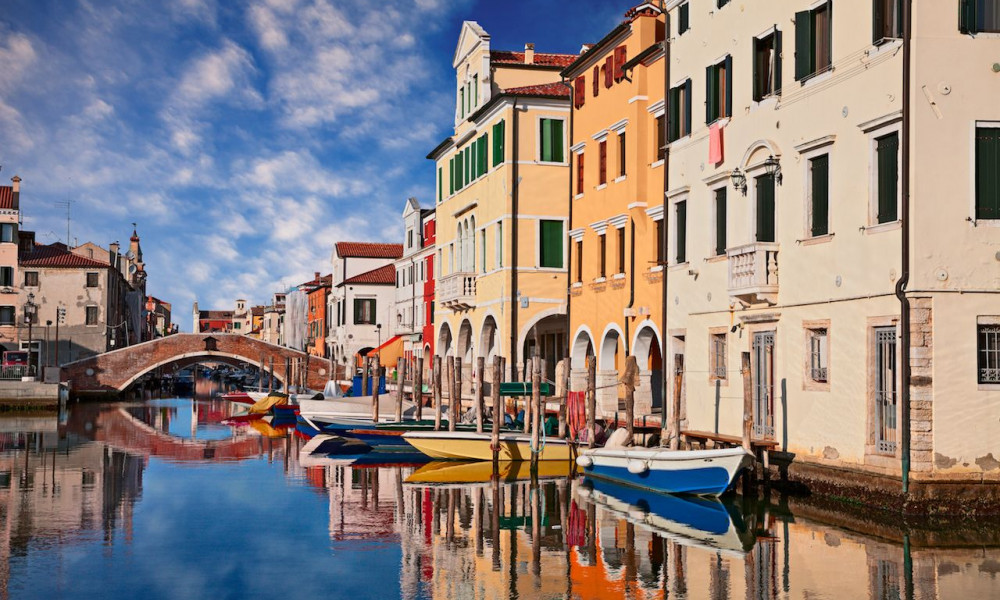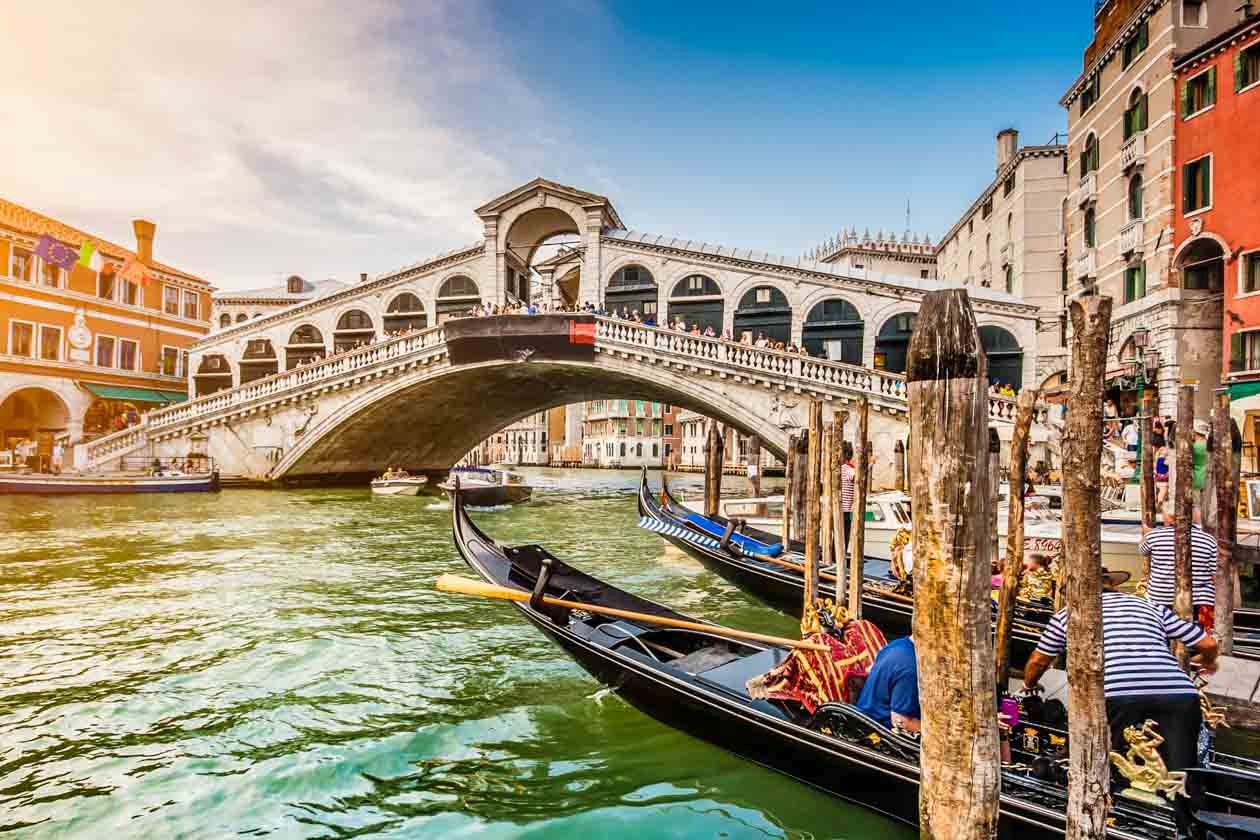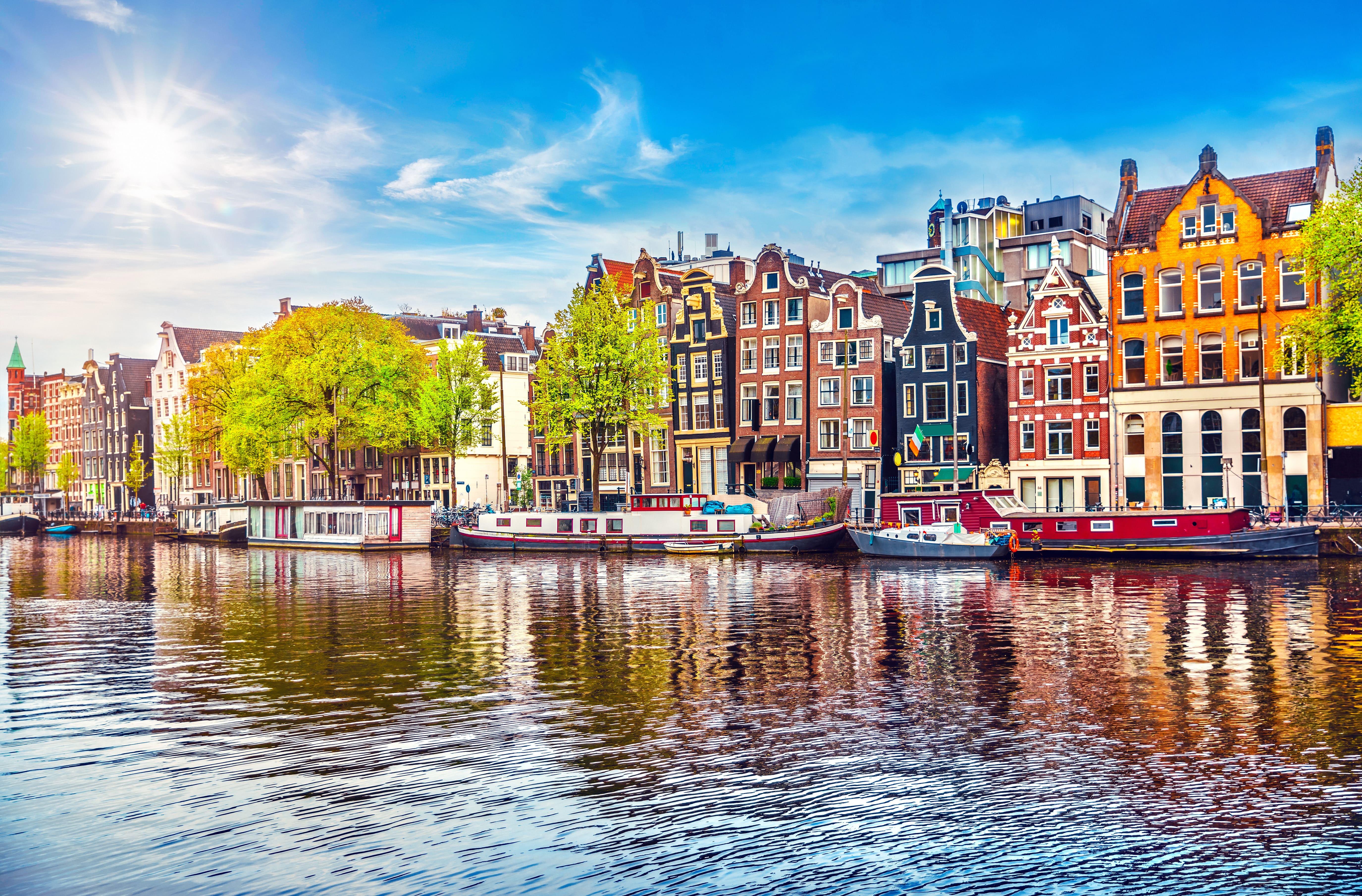Soon to burst: cities that oppose tourism

Despite the fact that tourism brings Venice, Barcelona, Amsterdam and Berlin up to 35% of the total income, in recent years, their residents are increasingly taking to the streets with banners “Tourist go home”. It would seem a paradox, but there is also a rational kernel in this. On the example of the most popular European cities OUTLOOK understands why, despite the obvious benefits, locals are not so willing to host tourists.
Venice
About 70 thousand people visit the island of Venice daily, which is fifteen thousand more than its population. The city begins to function in favor of tourists and against local residents: the rent is growing, grocery stores are giving way to souvenir shops, bars for locals are turning into expensive restaurants with menus in ten languages. Photo getyourguide.ru
Photo getyourguide.ru
In recent years, unable to withstand such a pressure, thousands of people took to the streets with banners "Bring the city back to us". People spoke out against tourists who come to Venice for one day (mainly cruise liners and excursion groups that are brought to the city for half a day as part of the tour), roam crowds along central streets and contribute nothing to the economy. It is these guests who are most annoying to the locals and most of all affect the infrastructure.
In general, the Venetians are not against tourists and advocate travelers who are going to spend several days, not hours, in the cit in order to enjoy its atmosphere, and not take a couple of selfies on Piazza San Marco and the Rialto Bridge. The authorities support the initiative of the citizens not on paper but in real life. For example, in Venice there are counters of tourist control, there is a ban on opening new outlets with street food and a bill banning the licensing of new housing for rent. Large penalties for tourists are also provided.
Barcelona
The Venetian march of protest caused a great resonance in the press and very soon other cities crowded with tourists kept the torch burning. The second of them was Barcelona. The city is so tired of tourists that it almost unanimously voted for the mayor, who in many ways built her campaign on the program to free the capital of Catalonia from uninvited guests. Photo europeanbestdestinations.com
Photo europeanbestdestinations.com
Both in Spain and in Italy, people greatly honor family and traditions. They go to the same restaurant for decades, become attached to their favorite markets and grocery stores, maintain friendly relations with their neighbors and value them very much. Therefore, the flow of tourists (and last year Barcelona was visited by a record 75 million people), capable of changing this familiar and cute Catalan order of things, is perceived by them negatively and even hostilely. But there are more rational reasons. Daily rent turned out to be more profitable than long-term, so today it is almost impossible to find an apartment in Barcelona city center for a long-term rental for moderate money. In addition, you have to endure drunken parties under the windows, high prices in central restaurants and constant segway tours that occupy the entire sidewalk and prevent pedestrians from traveling. The mayor of Barcelona, Ada Colau, is trying to solve these problems efficiently. She did not hesitate to introduce a moratorium on the construction of new hotels and the issuance of licenses for renting apartments to tourists and regulated the rules for using segways.
Amsterdam
The protests also reached Amsterdam. There, the main marches were held under the slogan “We do not want to turn into Northern Venice”, and the problem was solved even more efficiently than in Barcelona. The authorities of Amsterdam considered that a good tourist is a rich tourist, and raised the tax on staying in the city up to 10 euros per night, thereby eliminating the unattractive quarter of guests who stay in budget hotels and hostels. Photo invasion.com
Photo invasion.com
Now a night in Amsterdam will cost a tourist no less than 50 euros which means that many hostels will have to close, the city center will be cleaned at least minimally, and the locals will be able to breathe deeply again. Moreover, mostly students and schoolchildren who have escaped to Amsterdam to come off in clubs and coffee shops stop at the hostels. It is they who most often have noisy parties under the windows and do not let the locals sleep soundly.
Before the introduction of the tax, Amsterdam was visited by about 20 million people a year.Some of them stay in good hotels, spend money on museums and restaurants, while others eat falafel and live in dormitories. Now the authorities have relied only on the first category and with the help of tax they hope to reduce the number of tourists by a quarter, leaving tourism income at the same level.
Berlin
Berlin did not participate in the protests, but faced with the problem of tourism long before that. Back in 2011, the city began to hold rallies against travelers who do not contribute to the city’s economy, but have a devastating effect on its infrastructure. Due to its relative cheapness, Berlin quickly became popular with students and European youth. They flock to the city for the weekend, drink cheap beer and eat doners in the eateries of Kreuzberg and Friedrichshain, and also attend numerous raves. But even such budget vacation seekers have greatly influenced prices and rents. Photo guruturizma.ru
Photo guruturizma.ru
For example, due to the large influx of tourists, cheap Kreuzberg, Friedrichshain and Neukeln turned into trendy hipster districts, and housing rental prices rose sharply. Locals are forced to move out of their inhabited rented apartments and go in search of new, not so attractive, but more budgetary ones. The city authorities, seeing the problem, tightened the rules for renting apartments through rental services like Airbnb. Now it’s almost impossible to find housing in the city for less than 50 euros. Although a certain relaxation in the rules is expected, it is still unclear how it will be in practice. Photo farm3.staticflickr.com
Photo farm3.staticflickr.com
What should tourists expect?
In general, locals are not against tourists. They perfectly understand how much they bring to the budget, and how important it is for the development of the city. But the perfect tourist in the understanding of the locals is a rich, civilized person who does not spare money for expensive hotels and restaurants, that is, one who does not particularly touch the local on the streets, in inexpensive establishments and does not pretend to rent apartments. This means that one way or another, in a city crowded with guests, they will increase the price of staying there. There is nothing to be done about it, and if you really want to see Barcelona and Berlin, you will have to pay a considerable amount for this. Moreover, crowds on the streets, lines to sights and popular restaurants annoy tourists themselves no less than locals. And for comfort and convenience you have to pay. Well, if you want to spend a budget holiday, for this there are other, no less interesting, but less hyped cities. Less promoted so far...
Cover photo matadornetwork.com





















